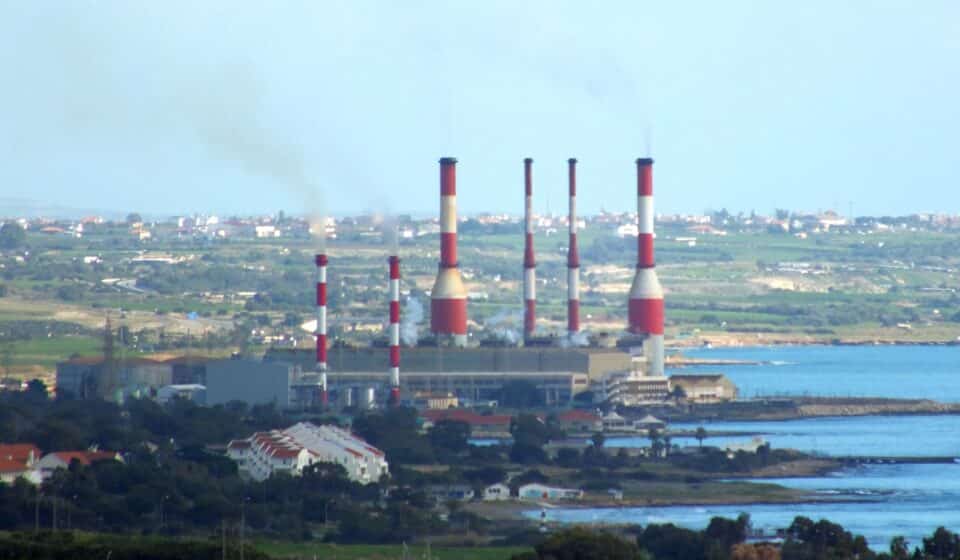The Dhekelia power station will continue to operate and will be modernised, according to a joint energy ministry and electricity authority (EAC) decision announced on Wednesday.
Speaking to state broadcaster CyBC, Energy Minister Giorgos Papanastasiou said the obsolete units at the Dhekelia station would be replaced with “small, flexible production units” while, simultaneously, energy storage facilities would be installed.
The latest decision marks a departure from an earlier plan to shut down the power plant all together, which has been postponed, the minister said.
The decision to proceed with upgrading Dhekelia and doing away with its outdated and highly polluting units came after four hours of discussion between the ministry, EAC leadership and union reps, carried out in a “super positive and productive” atmosphere the minister said.
Papanastasiou went on to detail that the plan involves installation of two 40MW generators as well as storage to be determined in accordance with the electricity regulatory authority (Cera).
Funding for the upgrade, and whether it is to be covered by internal funds, partial state funding, or through external loans, is still to be determined, the minister said.
Despite this development and the “Photovoltaics for all” plan, details of which are to be officially announced tomorrow at a press conference, Papanastasiou said he predicted an increase in the price of electricity overall.
“Wars and [other] crises are causing states, including within the EU, to turn inwards for their energy needs and many have returned to using fossil fuels,” the minister noted, adding that increased demand and trading for carbon offsets would likely drive up the price.
“However, we are engaged in many actions to mitigate this rise and the already high cost of electricity,” the minister assured.
The operation of the Dhekelia plant had been granted an extension to operate until 2029 by the EU commission, despite its high carbon emissions and ensuing pollution fines-to the tune of €300 million a year – paid by consumers in Cyprus.
But the minister maintained the main goal is to ensure lower costs and for Cyprus to become self-sufficient in its energy needs.
“We are pursuing multiple actions, such as the import of natural gas predicted for June 2024, which will certainly avoid a worst-case scenario,” the minister said.
The worst-case scenario to which he was referring was an estimated €500 million in emissions fines to be paid by EAC consumers next year, a figure he had quoted in a recent interview with Haravgi.
EAC spokeswoman Christina Papadopoulou, speaking on the same programme, said the upgrade to the station had long been recommended by external experts and was a delayed response. However, it was welcomed by all stakeholders, and will be flexible and able to contribute to the green transition and energy autonomy, she said.
The operation of a second plant, in addition to the one at Vasiliko, is necessary for the stability of the grid and will offer a mixed-system capability, she added.
“EAC will now obtain the necessary licences to proceed with the modernisation with the full support of the ministry,” Papadopoulou said. “The new units will be much more productive and will not produce such high emissions.”







Click here to change your cookie preferences